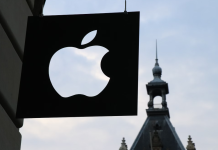Apple is constantly in the news not only for its products and services but for facing lawsuits as well. A new lawsuit filed by an Italian Consumer Protection agency could cost the Cupertino giant up to 60 million euros if it loses.

Italy’s Altroconsumo has filed a class-action lawsuit against Apple in the Court of Milan. It says that the company has deceived consumers with practices of “planned obsolescence”. That is, the lawsuit is for more than 1 million units of affected iPhone 6, 6 Plus, 6S, and 6S Plus sold between 2014 and 2020.
It is referring to the performance throttling(“batterygate”) that Apple’s iPhone 6-series devices faced then. A similar issue made Apple pay a whopping $500 million back in March 2020. Also, this new lawsuit comes a month after the company was slapped with a 10 million euros fine in Italy over “misleading claims regarding water resistance”.
Anyway, Altroconsumo is asking for a compensation of about €60 million(~$73 million). It is trying to convey that Apple is using unfair practices to slow down the older iPhones through software updates which inturn degrades battery. To cover up the contested throttling issue, Apple had reportedly opened a “battery replacement campaign” at a reduced price(€29-€89).
While the earlier lawsuit in US-made Apple pay $25 to each affected consumer, this one would amount to about 60 euros per concerned person. Apple has been facing a lot of “batterygate” lawsuits in Europe lately. Italy is the latest to join the countries like Belgium and Spain which filed a similar one last month.
Although Apple had denied a planned batterygate campaign, it has admitted in the past that the processor’s clock speeds will reduce if the battery degrades. Let’s see how it handles this one as Portugal prepares to join with its own lawsuit soon.
Ivo Tarantino, External Relations Manager of Altroconsumo says, “We hope this is the last step to remedy the damage caused to date by the company but it is also the first step towards greater fairness by Apple towards its consumers”.
RELATED:
- Samsung Galaxy Watch 4/Watch Active 3, Apple Watch 7 could get ‘Blood Sugar’ Monitoring feature
- Apple to cross $100 billion in sales in Q4 2020: Report
- Apple to discontinue lawsuit against Prepear over its pear-shaped logo
(via)







